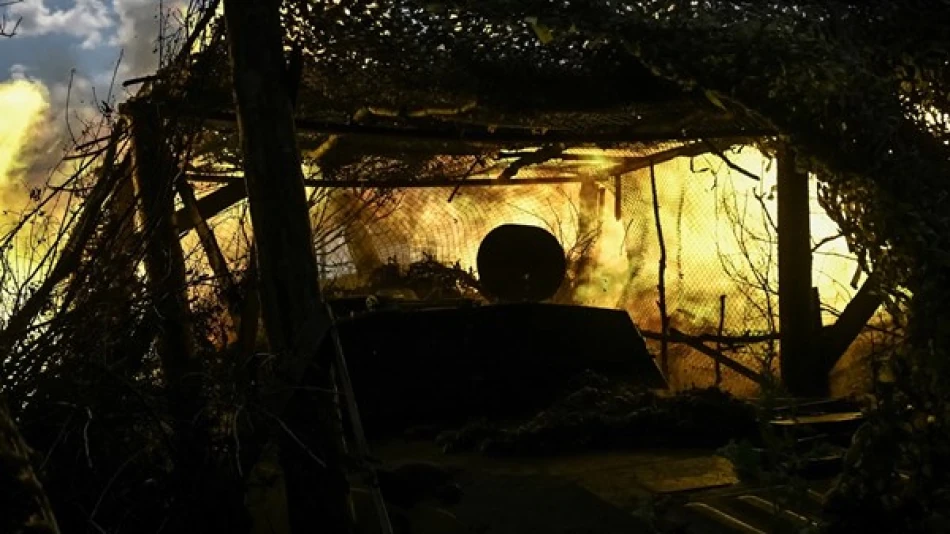
Russia Secures Strategic Village in Southeastern Ukraine, Bolstering Military Presence
Russia Claims Strategic Gains in Southeastern Ukraine as Drone Warfare Intensifies
Russian forces have reportedly captured the village of Novomykolayivka in Ukraine's Dnipropetrovsk region, marking another territorial advance in the country's southeastern front. The announcement comes alongside claims of extensive Ukrainian drone interceptions, highlighting the increasingly aerial nature of the nearly two-year conflict.
Territorial Advances in Dnipropetrovsk Region
The Russian Defense Ministry announced Saturday that its forces had seized control of Novomykolayivka, a settlement in the Dnipropetrovsk region of southeastern Ukraine. This capture represents part of Russia's ongoing efforts to consolidate territorial gains along multiple fronts, particularly in areas that serve as strategic corridors toward major Ukrainian industrial centers.
The Dnipropetrovsk region holds significant strategic value due to its proximity to critical infrastructure and supply lines. Control over villages in this area provides tactical advantages for artillery positioning and logistics networks, potentially affecting broader military operations in the region.
Escalating Aerial Combat Operations
Russian military officials claimed their forces destroyed Ukrainian long-range aircraft infrastructure and intercepted 340 Ukrainian drones within a 24-hour period. These figures, while unverified by independent sources, suggest an intensification of aerial warfare tactics on both sides.
Drone Warfare Evolution
The reported scale of drone interceptions reflects how unmanned aerial vehicles have become central to modern battlefield strategy. Ukraine has increasingly relied on drone swarms for reconnaissance, targeted strikes, and psychological warfare, forcing Russia to develop comprehensive air defense responses.
This aerial escalation mirrors patterns seen in other contemporary conflicts, where drone technology has fundamentally altered military engagement rules. The numbers suggest Ukraine is maintaining significant drone production capabilities despite ongoing supply chain pressures.
Strategic Implications for the Conflict
The simultaneous territorial claims and aerial defense operations indicate Russia's dual-track approach: securing ground positions while neutralizing Ukraine's technological advantages. This strategy reflects lessons learned from earlier phases of the conflict, where Ukrainian drone capabilities proved highly effective against conventional forces.
The targeting of long-range aircraft infrastructure particularly signals Russian concerns about Ukraine's ability to project power beyond immediate front lines. Such capabilities threaten Russian logistics networks and rear positions, making their elimination a strategic priority.
Regional Security Dynamics
These developments occur as both sides prepare for potential shifts in international support structures. The intensity of current operations suggests efforts to establish stronger negotiating positions should diplomatic opportunities emerge, while simultaneously degrading opponent capabilities through sustained pressure campaigns.
The focus on southeastern territories also aligns with Russia's broader objective of securing land corridors and industrial assets, potentially setting conditions for longer-term territorial consolidation regardless of eventual conflict resolution mechanisms.
Most Viewed News

 Layla Al Mansoori
Layla Al Mansoori






